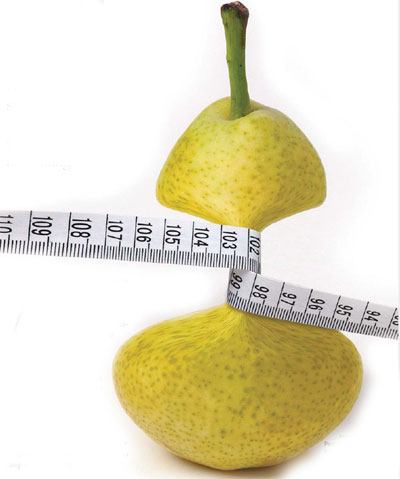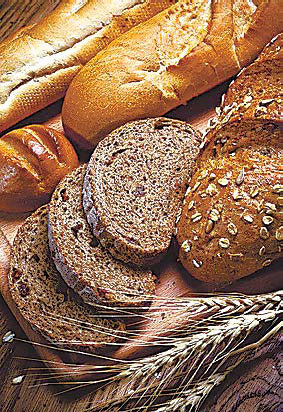Life and Leisure
It's official: Cut the carbs for weight loss
(China Daily)
Updated: 2010-12-01 08:05
 |
Large Medium Small |
|
|
A new European study confirms what many diet gurus have been advocating.
A team of European researchers confirms what many weight-loss gurus have claimed: Eating more protein and fewer refined carbohydrates helps to keep the pounds off. Among men and women who had lost at least 8 percent of their body weight on a low-calorie diet, those who spent the next six months following a maintenance diet high in protein and low in refined carbs were the least likely to regain any weight, and were also the least likely to drop out of the study.
So is this something you can try at home? Maybe. Participants were divided into groups eating varying amounts of protein, a moderate amount of fat, and different quantities of carbs categorized as either high or low on the glycemic index, a measure of how fast a food is converted to sugar in the blood.
Whether the study results "translate into different dietary advice for more broad use probably still has to be discovered because glycemic index is really not an easy and straightforward tool to use for most people", says Dr Thomas Meinert Larsen of the University of Copenhagen, one of the study's authors.
The glycemic index, GI for short, was originally developed for use by diabetics, and indicates how quickly blood glucose peaks after a person eats a particular food. High-GI foods, like white bread, produce a quick spike in blood glucose, while low GI foods, like whole grain breads, cause a slower increase in blood sugar that lasts for a longer period of time. Most food labels don't list a food's GI, nor is there adequate information on the GIs of different foods available on the Internet, according to Larsen.
In the new study, published in The New England Journal of Medicine, Larsen and his colleagues initially enrolled 773 men and women and their families in eight different western European countries. Families were randomly assigned to one of five different weight-maintenance diets for 26 weeks. None restricted calories, but four of the diets did dictate the proportion of proteins, fats and refined carbs that should make up daily food intake.
One group with no food restrictions served as a control, the rest were assigned to eat either a low-protein, low-GI diet; a low-protein, high-GI diet; high-protein and low-GI; or high-protein and high-GI. In the low-protein groups, people consumed 13 percent of calories as protein; in the high-protein groups, 25 percent of total energy consumed was protein. People in all of the groups could eat as much as they liked.
Seventy-one percent of the adults enrolled in the study completed it. While around 26 percent of people in the high-protein or low-GI groups dropped out of the study, 37 percent of people in the low-protein, high-GI group quit.
|
|
Among the 548 people who completed the study, only those who ate a low-protein, high-GI diet gained a significant amount of weight (1.67 kg, on average). When the researchers looked separately at people in the high-protein diet groups, they found these individuals gained about 1 kg less than those in the low-protein groups; the same was true for the low-GI versus high-GI groups.
Larsen points out that people should use common sense in applying the low-glycemic principle. The hazelnut-chocolate spread Nutella actually has a lower GI than boiled carrots, he notes, although it obviously isn't the healthier food; for this reason, he says, people should use the GI concept within food groups, for example choosing whole grain instead of white bread, or brown rice versus white.
While anyone can slash their calorie intake and lose weight short-term, the hard part is keeping it off, says Dr David Ludwig, the director of the Optimal Weight for Life Program at Children's Hospital Boston. The fact that people in the high-protein, low-GI diet were the most successful suggests that keeping weight off doesn't have to be a matter of sheer willpower, adds Ludwig, who co-authored an editorial accompanying the study.
"The nature of the diet and how that diet affects our underlying biology may have a lot to do with how likely we are to comply, to remain on the diet," Ludwig says. People on the high-protein, low-GI diets "appear to like this way of eating more, perhaps because they were feeling less hungry and more energetic ... or just noticing that they were doing better. There's nothing that succeeds like success when it comes to weight loss".
According to Ludwig, people can definitely try this at home. "Adding a serving of nuts and beans to the diet every day and cutting back on the refined grains will produce at least as much dietary change as they obtained in the study," he says.
If everyone could cut back on two servings of refined grains and substitute that with one serving of nuts and one serving of beans, the impact on public health would really be potentially enormous, and that's a change within everyone's reach, Ludwig adds.
Reuters

